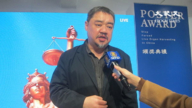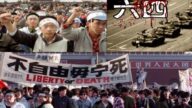【新唐人2012年9月13日訊】「英國廣播公司BBC」10號報導,今年90歲的匈牙利前共產黨領導人貝洛•比斯庫,因為被控暴力鎮壓1956年匈牙利人民革命而遭逮捕。雖然這場「匈牙利革命」被認爲和中國的「六四事件」有類似之處,但評論認爲,中共領導層並沒有從類似的事件中驚醒。
比斯庫被控在戰爭期間沒能保護平民,並下令保安部隊開槍射殺51名民眾。雖然比斯庫否認這些指控,但是如果罪名成立,他可能面臨終身監禁的懲罰。由於年老體衰,比斯庫目前受到軟禁。
1956年10月23號,匈牙利人民起義,反對蘇聯控制的匈牙利共產黨專制政府。最初以和平的學生運動開始,但是蘇聯的坦克開進布達佩斯,蘇軍的血腥鎮壓一直持續到11月4號,至少3000名匈牙利平民被打死,20萬人逃往西方國家。匈牙利首腦伊姆爾•納吉宣佈匈牙利退出華沙條約組織,而被蘇聯以反革命的罪名處以絞刑。
在這場被稱爲「匈牙利革命」的事件中,比斯庫積極組織黨員參與蘇軍鎮壓,之後他在蘇聯扶植的匈牙利傀儡政府中擔任過內政部長。由於匈牙利今年年初修改法律,比斯庫才得以被控罪。
北京律師江天勇介紹,民主國家對過去政府違法和不正義行為的彌補,被稱爲「轉型正義」(Transitional Justice)。
北京律師江天勇:「像匈牙利這樣的國家存在一個『轉型正義』的問題,不僅僅轉型就完了,轉型之後對過去曾經犯過的罪行肯定要有一個審判,否則的話它就沒有公正。」
江天勇表示,雖然有些獨裁政權的官員認爲,只要沒有直接殺人,就可以逃脫鎮壓民衆的責任,但實際上不可能。
江天勇:「有些罪行它不能溯及既往,比如説簡單的民事糾紛,簡單的故意傷害,可能,但是涉及到反人類,這樣一些人權迫害,一般來説,很難逃掉這種歷史的懲罰。」
旅居德國的「民主陣線」主席費良勇撰文指出:「匈牙利事件的總體過程同中國的八九民運類似,不過,匈牙利慘案主要是外國軍隊造成的,六四大屠殺完全是本國軍隊製造的。」
那麽,匈牙利國家體制的轉型是否可以作爲中國的借鑑呢?
大陸媒體人黃良天指出,關鍵不在於政治體制,而是中國人的意識已經被黨文化污染。
大陸媒體人黃良天:「你就是把台灣那一套搬到中國大陸來,也是一團糟。所以說,對人的意識的那種毒害,那根深蒂固。中國社會最可怕的癥結就在這個地方,而不在於幾個領導人、貪官。」
黃良天表示,從現狀看,匈牙利、紅色高棉的例子都沒能讓中共驚醒。
黃良天:「它現在已經形成了一種慣性,誰也煞不住。它如果沒有一個非常大的外部環境,或者社會環境起來的話,你光靠這個黨的本身,領導人的自我發現,或者他們的一種甚麽清官情結,很難扭轉這麽一個趨勢——越來越走向專制。」
對於1956年的「匈牙利革命」,《新華社》辦的《世界知識》期刊中,不提警方開槍打死上百人,因此引發群衆怒火,卻一直宣傳匈牙利百姓激進;又指稱革命是由於西方煽動;還淡化總理伊姆爾•納吉最重要的舉措——匈牙利要求中立,退出華約組織。
採訪/白梅 編輯/尚燕 後製/葛雷
90-Year-Old Ex-Hungarian Communist Leader Arrested
On September 10, the BBC reported of Bela Biszku’s arrest.
Biszku, 90, was former Hungarian communist party leader.
He was accused of violent suppression on civilians
during the 1956 Hungarian Revolution.
The Uprising of 1956 was considered similar
to the June 4 Incident of 1989 in China.
Commentators say, the Chinese Communist Party (CCP)
top leaders have not yet learned from these real life lessons.
Biszku is accused of “failing to protect civilians in wartime,
and of responsibility for ordering security forces
to open fire on crowds," said the BBC news report.
Biszku “denies the charges, for which he could face a life
sentence." “Prosecutors want him put under house arrest."
On October 23, 1956, a mass uprising erupted in Hungary,
against the Soviet-backed communist regime.
The uprising began as a student demonstration.
Afterwards, the Soviet army tanks rolled into Budapest.
The bloody crush lasted until November 4. At least 3,000
Hungarian civilians were killed and 200,000 people fled to Western countries.
Hungarian’s then leader Imre Nagy announced
Hungary’s withdrawal from the Warsaw Pact.
Nagy was later executed (by hanging)
by the Soviets on charges of treason.
The BBC news reported that Biszku was “one of the key
designers and one of those responsible for the reprisals that followed the 1956 revolution and uprising".
Biszku later served as Interior Minister in the puppet regime
installed by the former Soviet Union.
Biszku was finally prosecuted for war crimes after
“the so-called Biszku Law was drawn up in 2011."
Beijing-based lawyer Jiang Tianyong introduced
the concept of “Transitional Justice."
It refers to approaches that states may use to address
past governments’violations of law and justice.
Jiang Tianyong: “Like Hungary, which now deals
with the issue of “transitional justice."
After the country’s political transformation,
it will definitely bring those past criminals to justice.
Otherwise, justice would not exist
anymore in this world."
Jiang Tianyong said this is a warning
to all those dictatorial regimes’officials.
Some of them thought they would escape liability
for repression only if they did not directly killed civilians.
Jiang Tianyong warns,
that would not be possible in real life.
Jiang Tianyong: “Some crimes cannot be retroactive. Such
as simple civil disputes, non-serious intentional assaults.
But when it comes to crimes against humanity, like human
rights violations, for the culprits in general was hard to escape punishment in history."
Fei Liangyong, chairman of Germany-based
Democratic China Front, wrote an article on the issue.
Fei said, “The Hungarian event was overall similar
to the 1989 pro-democracy movement in China.
The Hungarian tragedy was mainly work of foreign troops.
But the June 4th Massacre in China was completely done by the Chinese army,"the author points.
Can Hungarian’s political transformation
serve as a model for China?
China’s media professional, Huang Liangtian,
says the issue is not with the political establishment.
Rather, the problem is that Chinese people have been
brainwashed by the CCP’s culture for too long.
Huang Liangtian: “Even the current political system
in Taiwan cannot work in today’s mainland China.
Chinese people are now deeply ideologically poisoned.
That’s the most serious crux of nowadays Chinese society.
Corrupt officials in the ruling political system
is not the biggest concern now."
Huang said that cases like Hungary and Khmer Rouge,
have not yet awakened the CCP top leaders.
Huang Liangtian: “Now it (CCP’s regime) has formed
an inertia system which no one can stop.
If China can’t create a powerful social pressure, it’s too hard
to reverse the trend of CCP’s approach to dictatorship."
CCP’s Xinhua News Agency also commented
on the Hungarian Revolution of 1956.
The official media ignored the fact that the militia had
fired upon hundreds of people which outraged civilians.
It however threw the blame on the Hungarian people,
accusing them of being overflowed with radicalness.
The commentary alleged that the uprising
was incited by the Western Bloc.
Further, it down played the importance of Hungary’s
then Prime Minister Imre Nagy’s announcement – to seek neutrality by quitting the Warsaw Pact.


























